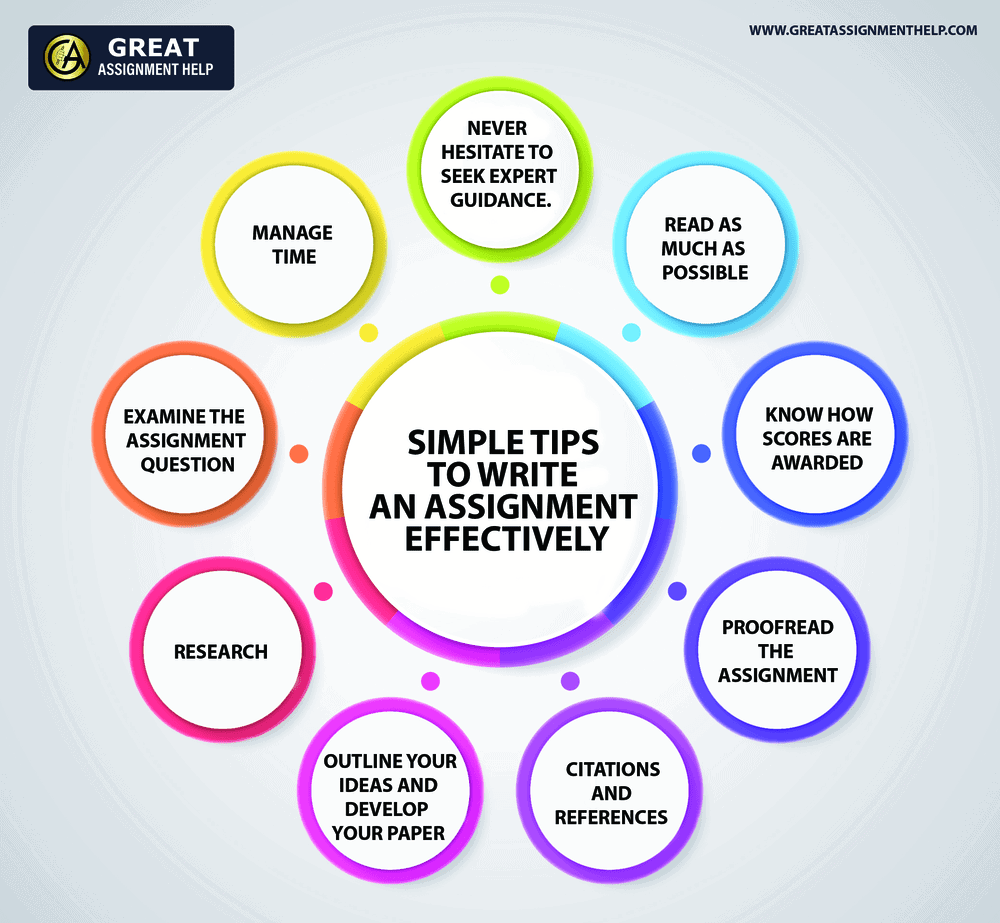Assignments are one of the most important parts of an academic curriculum. They carry significant grades across the entire scoring rubric of an academic institution. Hence, negligible errors in assignments often become prominent reasons for scoring lower grades. If you are unsure of how to write an effective assignment, read our blog. Here, we have shared simple tips to write an assignment. You can also learn about the importance of assignments and the types of assignments you may need to write as a part of your academic curriculum from this blog.
What is an Academic Assignment?
An assignment is an academic task that educational institutions assign you as a part of the course curriculum. Here you find the solution to a subject-specific problem in an academic context. When you write an assignment, you expand your knowledge and understanding of the researched subject. It also enhances your research and writing skills.
Various Types of Academic Assignments
If you are looking for some tips to write an assignment, you must be familiar with the types of assignments you have to write. Here are some of the popular types of academic assignments:
- Essays: It is a short piece of writing typically between 300-1000 words that deal with a single subject. When you write an essay, you use evidence to uplift the primary argument of your essay. It helps you to persuade your reader to accept your point of view.
- Business reports: A business report is a type of document where you must showcase the collection and examination of relevant business-related information like facts, analysis, and figures. The primary objective of a business report is to share information in an organized manner. It helps the leaders of the organization to make major decisions and plan for the future.
- Case study: A case study is a type of assignment that tries to solve complex issues related to a subject in a real-life situation. Here, you must research to get an in-depth and multi-faceted recognition of the issue.
- Literature review: When you write a literature review, you showcase your knowledge of the academic literature and what you understand about the subject in a given context. Typical literature involves a critical evaluation of the subject.
- Annotated bibliography: An annotated bibliography gives a summary or a short account of the available research on a given topic. It lists the research sources in the form of a referential citation, which is followed by an annotation or a summary that evaluates the cited reference.
- Research papers: A research paper is a type of assignment where you conduct independent research on a subject and present your analysis, interpretation, and arguments based on your research.
Also read: Learn How to Write an Assignment Introduction
Significance of Writing an Assignment
The tips to write an assignment we have shared below become quite irrelevant if you don’t know the benefits or importance of writing an assignment. Usually, writing an assignment helps you in the following ways:
- Enhances your brain’s functioning: Teachers give you a variety of topics to write assignments. To develop documents on these topics, you need to research and analyze a subject and choose the right words to explain your thoughts. Doing these tasks enhances your brain’s functioning and also improves your practical skills.
- Develop your writing style: An academic institution usually assigns different types of assignments on a variety of subjects. The writing style for every subject and type of task is different. When you write assignments, you become familiar with various writing patterns, vocabularies, uses of words, accurate use of grammar and syntax, flow of words, etc. Hence, writing your assignment helps you develop your writing skills.
- Helps you focus on your task: Assignment writing is a compilation of multiple small tasks that take a long time to complete. Hence, when writing an assignment, you focus on completing a flawless assignment. In doing so, you learn to hold your concentration for a long time.
- Enhances cognitive skills: When you write an assignment, you may need to use your imagination to develop the concepts. Along with that, you need logic to analyze whether the ideas you imagine are good enough to use in your paper. It enhances cognitive and analytical skills.
- Boosts your confidence: The other advantage of writing high-quality assignments is that it boosts your confidence. An assignment becomes excellent if it is of premium quality, error-free, and original. If you can create an excellent assignment, it enhances your chance of scoring high grades. This, in turn, boosts your confidence.
Essential Components of an Assignment
An assignment consists of the following parts:
An outline
Not many experts who share tips to write an assignment will tell you that an outline is an integral component of an assignment. However, we believe that the outline is an integral part of the assignment. If you imagine the completed assignment as your house, an outline is a blueprint the engineer designed to ensure that all the rooms with their intricate details are placed where they should be. Hence, if you don’t have an outline, you don’t have a well-crafted assignment either. However, the outline is not a part of the final draft. It is just the guiding line.
Introduction
It is the first part of the assignment that introduces the topic of your assignment. Typically, an assignment consists of 3 parts:
- An opening statement – is a rhetorical statement or a question that hooks the reader into your writing.
- Background story – a few lines that state the background of your assignment topic and set the path of the flow to the body paragraphs
- A thesis statement – it is mainly included in essays and theses. It is the primary concept on which you base the assignment.
Body paragraphs
The body of the assignment can range between three and five paragraphs. Each of these sections includes the following elements:
- The first sentence consists of a subtopic or subject that you explain throughout the paragraph. It is related to the thesis statement.
- Arguments that favor or oppose the primary theme of the assignment
- concluding sentence that transitions the flow to the next subtopic mentioned in the subsequent section of the assignment
Conclusion
The conclusion is the final paragraph of any assignment. It again has 3 essential parts:
- Restated thesis or primary topic of the assignment – the conclusion begins with a restated thesis to emphasize to the readers that you have not deflected from the topic of your assignment while writing the paper and also to remind them of the topic of your assignment.
- Summary The synopsis of the main points you have discussed throughout your assignment.
- A closing sentence – it is the final sentence you write in your assignment. Typically, it highlights the relevance of your topic to your study field or a set of words that leave a mark on your reader’s mind regarding the topic you have discussed in your assignment.
Also Read: 6 Valuable Lessons From Frederick Douglass’s Life
9 Simple Tips to Write an Assignment Effectively
Follow these tips to write an assignment effectively.
1. Manage time
One of the first tips to write an assignment on our list is time management. You may spend a lot of time watching trending Instagram reels, and TikTok videos, playing games on the internet, or watching TV and OTT series. However, doing so reduces your chance of delivering a high-quality paper. You start working on your assignment at the last moment. Then, you focus on completing the task instead of concentrating on the quality of the content. Therefore, it is best to schedule a specific time to write your assignment. Use it specifically to get done with the task.
2. Never hesitate to seek expert guidance
Other significant tips to write an assignment include never hesitating to seek expert guidance. Writing an assignment is not all about penning your thoughts. It involves using appropriate grammar, spelling, formatting, and other intricate details. However, these things are quite hard to master. Many colleges and universities have writing centers. If possible, visit there and seek guidance. But if no such assistance is available at your institution, you may ask your lecturer or professor to share some tips to write an assignment, follow their suggestions, and implement them accordingly.
3. Read as much as possible
Writing an assignment is not a cup of tea for everyone. If you want to excel in writing, you must read a lot. Moreover, developing a habit of reading helps you find unique ideas and inspiration. It also enhances your assignment writing. Nonetheless, you must never stick to the suggested readings of your syllabus. Put your hand at anything that you find interesting. The idea here is to enhance your vocabulary and gain a proper notion of what you can put on paper and what you cannot.
Also read: Technology Research Topics for Writing Top-Notch Assignments
4. Examine the assignment question
The other essential tips for writing an assignment involve getting a deeper understanding of the assignment question. Once you recognize it, you can write an excellent assignment.
The best way to comprehend the meaning of the assignment question is to restate it in your own words and then examine it. Look for the words that contain commands for what you need to do in the essay. If the question consists of terms that you are unaccustomed to, ask your friends or a professor or lecturer you find friendly. In any way clarify the meaning of the sentence.
5. Know how scores are awarded
Many students do not worry about how professors score their research papers or essays. However, scanning over the assignment checklist and recognizing what the professor is looking for in your paper is essential to delivering a high-quality paper. Look for the rubric and see the division of scores. By doing so, you can concentrate on the essential areas that will help you secure an A+ grade.
6. Research
Once you know the topic of your assignment and how professors score your writing, take the next step of researching credible information to develop your paper. You may source information through local libraries or the library of your academic institution. Additionally, online research paper help can provide data on your topic. Nonetheless, never restrict your research to a specific source. Look for information in multiple areas. It will reduce the chance of developing your paper with the wrong information.
7. Outline your ideas and develop your paper
After sufficient research, you can begin outlining your ideas rooted in the topic. Illustrate your assignment topic with the ideas you want to place in your assignment and the way you want them arranged in the document. Take a look at our detailed description of the components of the assignment, outline your ideas, and develop your paper accordingly.
8. Citations and References
Typically, you can cite and reference your paper in the MLA, APA, and Chicago formats. Ask your professor or look at the assignment guidelines to assure yourself of the citation style that you must follow to develop your paper and make it flawless. Keep in mind that citing your paper in an incorrect style or formatting your citations incorrectly can reduce the grades you score for your assignment. It can also make your paper look plagiarized. If required, use citation tools or read the latest guidelines for the citation style to be aware of the intricate details.
9. Proofread the assignment
Most students want to submit their assignments the moment they complete their writing. However, we suggest against doing it. Proofreading and editing are essential parts of assignment writing. Reread your assignment thoroughly. Proofread your paper in the following ways.
- Look for errors in the flow of words and the information included in each section of the assignment. Edit them if required.
- Check for errors in the grammar, syntax, and structure of the paper. It will make your paper pristine in every sense.
However, you must take a 3-day break after completing your assignment and proofreading your solution. It will help you see your assignment in a new light and make the errors more prominent in your eyes.
Also read: How to Write a Research Statement?
Final Thoughts
Assignment writing is not a skill you are born with. Instead, you acquire this skill with time. Read more assignments submitted by others to know the factors that work into an assignment. Also, read books and fictional and nonfictional texts to increase your hold on the language. Finally, don’t forget to proofread your writing. If you have read this blog, you must have learned several other tips to write an assignment flawlessly. However, even after reading these tips, if you still struggle to develop a flawless paper, connect with our assignment helpers. The experts of our assignment writing services can offer the finest assistance and solve all your worries in no time.



